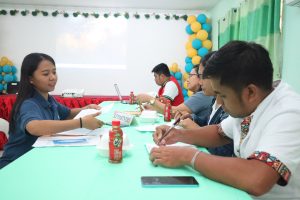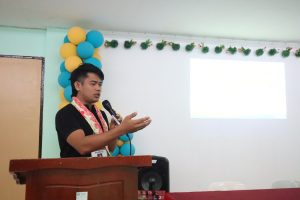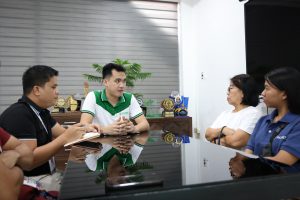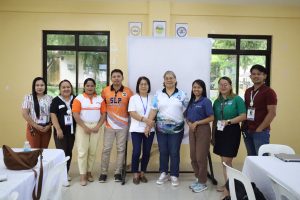Out of the 18 regions in the country, Caraga was among the six selected to serve as a research site for the Evaluation of the Effectiveness of Partnership Engagements to Sustainable Livelihood Program (SLP) Participants. The evaluation was conducted in Bislig City and the municipality of Barobo, Surigao del Sur, from April 28 to 30, 2025.

The evaluation aims to assess the extent to which partnership interventions have contributed to achieving the program’s objectives, particularly in improving the economic well-being of its participants. It also seeks to identify best practices, challenges, and areas for improvement in partnership mechanisms.

“The conduct of this research is essential in determining how effective our partners’ interventions are in supporting the goals of the program. It will help us identify strengths, address gaps, and ultimately improve service delivery to our participants,” said SLP Caraga Regional Partnership Officer (RPO) Antonio Semporios, Jr.

Consultants from the Asian Center of Education, Research, and Training for Innovation (ACERT) carried out the research, accompanied by personnel from the SLP Regional Program Management Office (RPMO) and the Provincial Operations Office of Surigao del Sur Cluster II.
A total of 60 SLP participants took part in the research, with 30 respondents each from Bislig and Barobo. They provided valuable insights and shared firsthand experiences on how partnership interventions have impacted their livelihood journeys.

During the exit conference, led by SLP Caraga Regional Program Coordinator (RPC) Reynard Roi Cabusao, along with Special Concerns Officer Rodel Crizaldo and RPO Antonio Semporios, RPC Cabusao underscored the vital role of partner organizations and their meaningful contributions to the program’s implementation and in uplifting the lives of its participants.

“Over time, our partners’ support has steadily grown. As of 2025, we have consolidated a total of 25 documented forms of assistance—diverse and impactful contributions that have significantly strengthened the program and, more importantly, generated more meaningful livelihoods for our participants,” RPC Cabusao stated.

The evaluation is being conducted in strategically selected areas across the country, using a combination of surveys, interviews, and field validation activities to ensure comprehensive data gathering. Findings from the evaluation will serve as a critical foundation for strengthening partnerships and refining implementation strategies, with the ultimate goal of improving program delivery and maximizing positive outcomes for the participants.


